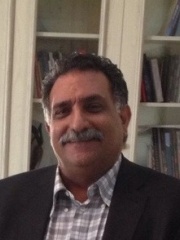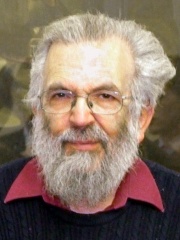



The Most Famous
PHILOSOPHERS from Israel
This page contains a list of the greatest Israeli Philosophers. The pantheon dataset contains 1,267 Philosophers, 4 of which were born in Israel. This makes Israel the birth place of the 42nd most number of Philosophers behind Estonia, and Denmark.
Top 4
The following people are considered by Pantheon to be the most legendary Israeli Philosophers of all time. This list of famous Israeli Philosophers is sorted by HPI (Historical Popularity Index), a metric that aggregates information on a biography's online popularity.

1. Antiochus of Ascalon (130 BC - 68 BC)
With an HPI of 67.55, Antiochus of Ascalon is the most famous Israeli Philosopher. His biography has been translated into 36 different languages on wikipedia.
Antiochus of Ascalon (; Ancient Greek: Άντίοχος ὁ Ἀσκαλώνιος; c. 135/130 – c. 68 BC) was a 1st-century BC Platonist philosopher. He rejected skepticism, blended Stoic doctrines with Platonism, and was the first philosopher in the tradition of Middle Platonism. Antiochus moved to Athens early in his life and became a pupil of Philo of Larissa at the Platonic Academy, but he went on to reject the prevailing Academic skepticism of Philo and his predecessors. This led to his resignation from the academy and the establishment of his own school, which he named the "Old Academy" as he claimed it was closer to original doctrines of Platonism that he believed had been betrayed by the skeptics of the New Academy under Philo. His students at this new institution included the Roman politicians Varro and Cicero. Antiochus was also the friend of the Roman politician and general Lucullus, whom he accompanied on a trip to North Africa and on a campaign to Armenia. After the decline of the New Academy in the late 1st century BC, his school was the sole inheritor of the Platonic tradition in Athens, which began the period of philosophy known as Middle Platonism. Antiochus endeavoured to bring some doctrines of the Stoics and the Peripatetics into Platonism, and stated, in opposition to Philo, that the mind could distinguish true from false, following the Stoic doctrine of katalepsis. In doing so, he claimed to be reviving the doctrines of the Old Academy. Despite his emphasis on the Platonic tradition, his ideas were often more Stoic than Platonist; in particular, he gave up the Platonic philosophy of transcendence in favor of a materialistic doctrine of nature.

2. Azmi Bishara (b. 1956)
With an HPI of 59.72, Azmi Bishara is the 2nd most famous Israeli Philosopher. His biography has been translated into 27 different languages.
Azmi Bishara (Arabic: عزمي بشارة born 22 July 1956) is an Arab-Israeli public intellectual, political philosopher and author. He is presently the General Director of the Arab Center for Research and Policy Studies and the Chair of the Board of Trustees of the Doha Institute for Graduate Studies. Born in Nazareth, Israel, his political activity began when he founded the National Committee for Arab High School Students in 1974. He later established the Arab Students Union when at university. In 1995 he formed the Balad party and was elected to the Knesset on its list in 1996. He was subsequently re-elected in 1999, 2003 and 2006. However, after visiting Lebanon and Syria in the aftermath of the 2006 Lebanon War, Bishara became the subject of a criminal investigation for acts of alleged treason and espionage and was suspected of supplying targeting information to Hezbollah. He fled Israel, denying the allegations and refusing to return, claiming he would not receive a fair trial. Bishara has since established himself in Qatar at the Arab Center for Research and Policy Studies as an academic and researcher. He also helped establish the Al-Araby Al-Jadeed media conglomerate. In 2017 he announced his retirement from direct political work at the beginning of 2017 with the aim of dedicating all his time to "writing and intellectual production".

3. Joseph Raz (1939 - 2022)
With an HPI of 57.94, Joseph Raz is the 3rd most famous Israeli Philosopher. His biography has been translated into 20 different languages.
Joseph Raz (; Hebrew: יוסף רז; born Joseph Zaltsman; 21 March 1939 – 2 May 2022) was an Israeli legal, moral and political philosopher. He was an advocate of legal positivism and is known for his conception of perfectionist liberalism. Raz spent most of his career as a professor of philosophy of law at Balliol College, Oxford, and was latterly a part-time professor of law at Columbia University Law School and a part-time professor at King's College London. He received the Tang Prize in Rule of Law in 2018.

4. Yuval Steinitz (b. 1958)
With an HPI of 53.12, Yuval Steinitz is the 4th most famous Israeli Philosopher. His biography has been translated into 20 different languages.
Yuval Steinitz (Hebrew: יובל שטייניץ; born 10 April 1958) is an Israeli politician who served as a member of the Knesset for the Likud party. He also held several ministerial posts, including Minister of Finance, Minister of Intelligence, Minister of Strategic Affairs and Minister of Energy. Steinitz holds a PhD in philosophy and has been a senior lecturer at the University of Haifa. His book "Invitation to Philosophy", was published in 74 editions and printings and considered the best-selling philosophy book in the history of the State of Israel. Steinitz currently serves as chairman of the board of Rafael Advanced Defense Systems.
People
Pantheon has 4 people classified as Israeli philosophers born between 130 BC and 1958. Of these 4, 2 (50.00%) of them are still alive today. The most famous living Israeli philosophers include Azmi Bishara, and Yuval Steinitz. The most famous deceased Israeli philosophers include Antiochus of Ascalon, and Joseph Raz.

